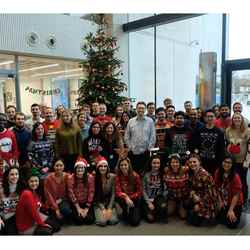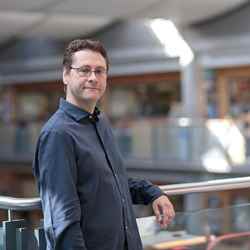Professor Edward Tate
Winner: 2020 Corday-Morgan Prize
Imperial College London and the Francis Crick Institute
For contributions to discovery of novel chemical probes, and their application in opening up new understanding of protein modification in living systems, leading to the validation of novel drug targets in cancer and infectious disease.
Celebrate Professor Edward Tate
#RSCAwards
Professor Tate’s research group works on the chemistry that happens inside living systems, in particular how cells modify proteins. Proteins are the machines that run cells and all life, converting chemical energy into motion, electrical activity or thought, and defending the body from infections. Chemical modification can be thought of as adding an ‘upgrade’ to a protein machine to allow it to work in a new or more efficient way – for example, by ensuring it is in the right place at the right time to do its job effectively, or allowing it to respond to a critical event in real time. These protein ‘upgrades’ are themselves added by other proteins – called enzymes – and are also used by bugs that cause disease such as malaria parasites, or even viruses which can commandeer a cell’s enzymes to upgrade their own proteins – for example to allow assembly of the protective protein shell which allows them to infect new cells. Cancer cells also switch off upgrades, or even add new ones, to evolve resistance to the body’s immune response or to drugs.
In Professor Tate’s lab, they have developed new technologies to understand how these upgrades work across whole cells or organisms and are particularly interested in identifying ways to disable or enhance protein modification to target diseases. For example, the team has developed new approaches for the potential treatment of diseases as diverse as malaria, cancer and the common cold, all by focusing on understanding and changing the chemistry of protein modification.
Read full biography

